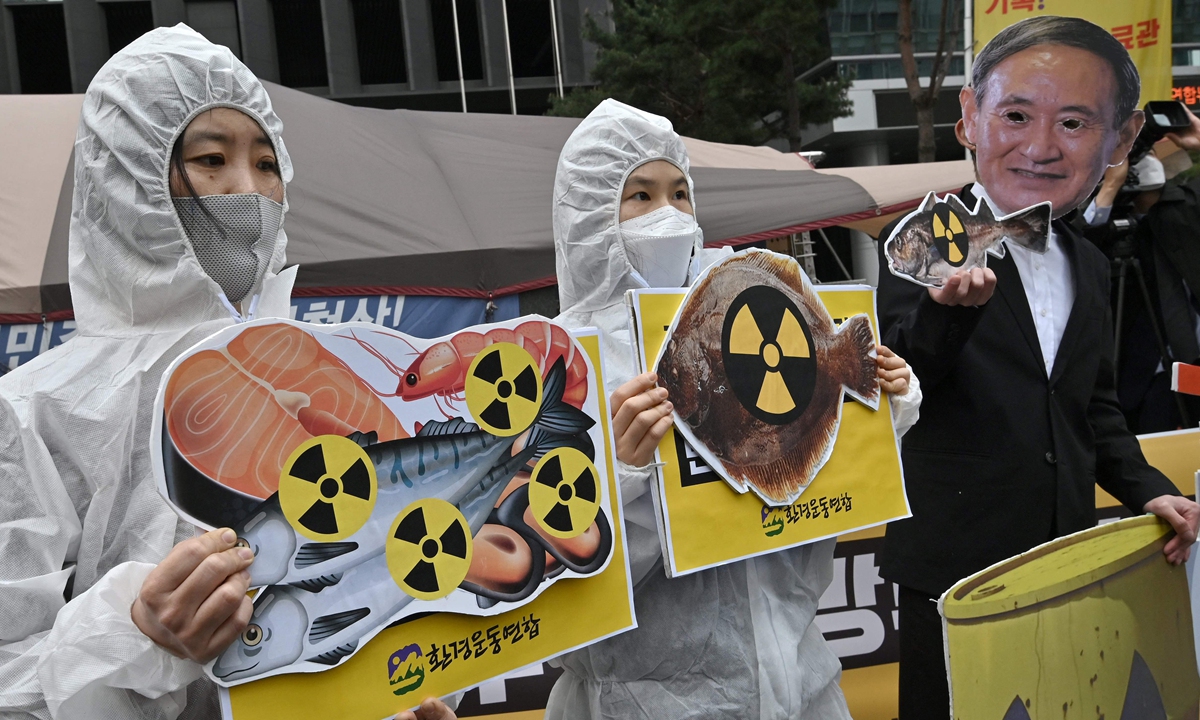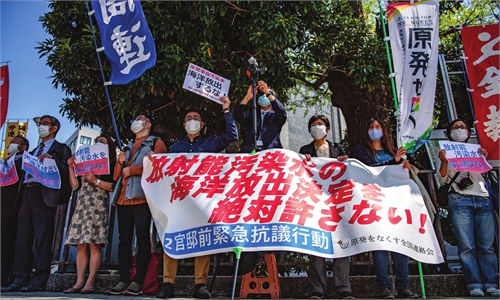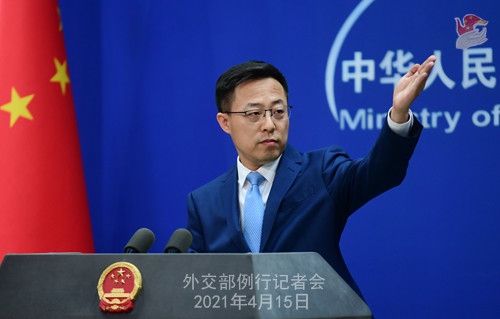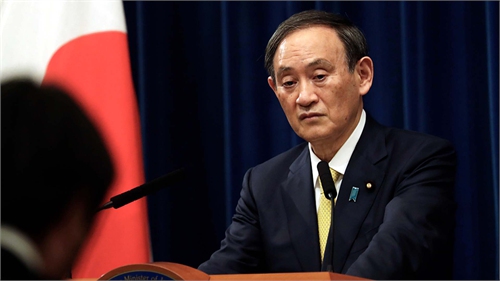Wastewater dumping reveals Japan's aggressiveness hidden behind a smoke screen of politeness

South Korean environmental activists wearing protective clothing and a mask (right) of Japan's Prime Minister Yoshihide Suga hold pictures of fish with radioactivity warning signs during a protest against Japan's decision on releasing Fukushima wastewater, near the Japanese embassy in Seoul on April 13. Photo: VCG
Japan is consuming its reputation as an economic and cultural powerhouse it has strived hard to achieve since the end of World War II, and its efforts to become a political major power and normal country will be questioned strongly by the international community, especially by neighboring countries, thanks to its decision this week to dump wastewater from the wrecked Fukushima nuclear plant into the Pacific Ocean.
"Japan has been seeking major power status, but it lacks a broad consensus on what type of national reputation it wants from the international community and how it should go about building that," Zhang Peizhi, a research fellow at the Chengdu Institute of World Affairs and a PhD candidate at the Graduate School of Arts and Sciences, the University of Tokyo, told the Global Times on Thursday, adding that for a long time, Japan has eyed building up its cultural diplomacy by exporting its culture abroad, as a way to divert political responsibility regarding issues such as war crime and, this time, nuclear wastewater dumping.
Obviously, Japan no longer cares about its reputation. By deciding to dump more than 1 million tons of treated and still radioactive wastewater into the ocean, Japan has begun a dangerous precedent: A country can be as selfish as to make the whole world foot the bill, while it will not be restrained or even punished by the US-led global governance system - the precondition is that the country is in cahoots with the US. This is enough to dishearten the whole international community. As for how to tear one's international reputation into pieces, Japan is well qualified to serve as a template.
Japan must have calculated what trouble its move will bring to the world. As the wastewater contains unknown quantities of radioactive contaminants besides tritium, it will generate an unimaginable impact on the world's maritime ecology once dumped into the ocean, which will cause ecological, economic and humanitarian disasters, and developing economies which have a relatively weaker ability to defend themselves from such catastrophes and those highly dependent on fishing will be the first to suffer. Japan's calculation and shrewdness lies in that it is taking hostage of the whole world to pay for its irresponsible deeds.
Japanese people in post-war era are known for their civilized behavior. When someone commits wrongdoing, they would present a 90-degree bow, accompanied by an apology for the trouble they brought. Nonetheless, the superficial civilized behavior often displayed in Japan is a cover-up for the actual aggressive nature of the nation.
Even until now, Japan does not have a correct attitude toward WWII. It even downplays the monstrous Nanjing Massacre committed by Japanese troops against ordinary Chinese people in 1937 by calling it the "Nanjing Incident" and refusing to acknowledge the actual number of victims. Meanwhile, the "comfort women" issue remains a thorn in Japan's relations with South Korea, another of its close neighbors. In late March, South Korean Foreign Minister Chung Eui-yong raised the issue again and said it could be addressed "99 percent" should Japan atone and apologize for it "with sincerity." It is such a sincere attitude that Japan lacks in dealing with its neighbors.
Just as Japan's historical revisionism, deflection and denial continue, some netizens believe Japan would deny the disastrous result its wastewater dumping will bring to global maritime ecology in the decades to come. They mock that Japan may even build a statue or shrine to commemorate those who dump the wastewater because Japan believes it is these people that help it turn the costs of handling the Fukushima nuclear disaster into the burden of the entire world and assist it in continuing its nuclear power strategy to serve its economy.
Japan allows the world to see that relations between certain countries have nothing to do with justice and morality, but only about selfish interests. The hypocrisy and irresponsibility of these countries has fallen to such a degree that they now don't even try to hide it. As they trample their own reputation into the ground, the international community has to act.
The author is an editor with the Global Times. wangwenwen@globaltimes.com.cn




